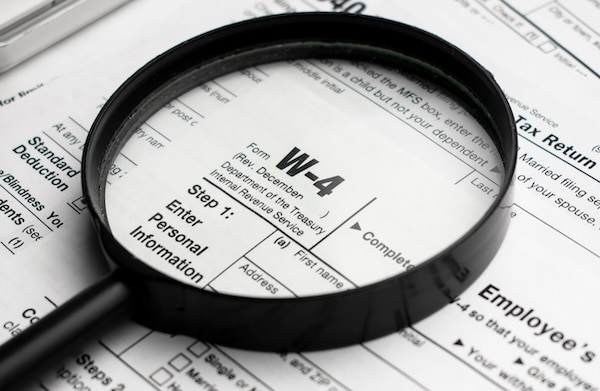401(k) Contributions: Your Future-Self Will Thank You

When you’re just starting a job, retirement might feel like a lifetime away. But starting to save for retirement early is one of the smartest financial decisions you can make. Why? Because time—and compound interest—are on your side. As much as compound interest on credit card borrowing can put you in a death spiral – the opposite occurs with savings.
One of the best retirement savings vehicles is the 401(k). Let’s walk through how to make your 401(k) work for you from the start. And despite all the complexity of the signup process, you really only need to make three big decisions:
- How much of your paycheck to put toward saving for retirement
- Choosing when you want to pay tax on your retirement savings (now or after you retire)
- Selecting which investments to put the money in.
What’s a 401(k), and Why Should You Care?
A 401(k) is a retirement savings plan offered through an employer. You decide how much (as a percent of your salary) you want to put into your 401(k), and the money comes out of your paycheck before you even see it.
That means you’re saving without even thinking about it.
How Employers Help
Most companies sweeten the deal by offering a 401(k) match. That means, whatever percent of your salary you decide to put in, your employer will match it – usually up to a maximum percent. That’s free money added to your 401(k) based on what you contribute.
Here is an example if your employer offers up to 3% match:
- You opt to put in 5% of your salary
- Your employer matches 3%
That’s 8% of your salary being saved for your future—just for participating.
Preston’s Practical Advice
In most cases, it’s best to contribute at least enough to get the full employer match – It’s free money. Don’t leave it on the table.”
Even if money feels tight, try to start with at least the match amount. You can increase your contributions over time as your income grows or your expenses decrease.
One scenario where it might make sense to not make contributions to your 401(k) would be if you’re carrying significant high interest debt – and you have the discipline to use the extra income to pay the debt down. In this instance, it makes sense to balance your extra cash between saving and paying off the debt. Remember, compound interest cuts both ways.
Choosing When to Pay Taxes. That’s a Traditional vs. Roth Decision: What’s the Difference?
If your employer offers both, here’s the cheat sheet:
- Traditional 401(k): Contributions are not taxed → you pay taxes when you withdraw the money during retirement.
- Roth 401(k): Contributions are taxed → withdrawals are tax-free in retirement
So, the question is; do you want to pay taxes now or later? It’s a good question. There are some things to consider, but the most important relates to your current and expected future tax bracket.
Preston’s Practical Advice
It’s okay to split 50/50 between the two. That way, you get tax benefits now and flexibility later.
When you’re young, your income and tax rate are generally low so that is an intuitive time to choose Roth contributions. However, it is a time of life for most people where student debt is high and money is tight, so it might be a better time to take the pre-tax benefits.
As your career matures, and earnings go up, it may make more sense to contribute pre-taxed. Remember, 401(k) savings are flexible and you can make changes at any time.
What Should You Invest In?
Once you start contributing, you’ll be asked to pick what to invest in. Don’t panic—you don’t need to be a financial expert. Most retirement funds are carefully constructed for a few general investment goals and levels of risk. I suggest looking for a target-date fund (often labeled something like “Target 2060” or “Retirement 2055”). These funds have a specific investment horizon (timeline) and automatically adjust the investment portfolio as you age, offering an easy, well-diversified option with minimal effort and appropriate risk levels for each stage of life.
Final Thought
Your 401(k) might be the most powerful tool in your benefits package. Start now, start small if you have to—but start. Your future self will be glad you did.
At Dealing With Debt, we believe small, smart steps add up to big results. We’re here to help you reduce stress, build confidence, and create a more stable financial future—one paycheck, one contribution, and one budget at a time.
Next Up: “Life Insurance: Do You Really Need It (And How Much)?”






Responses